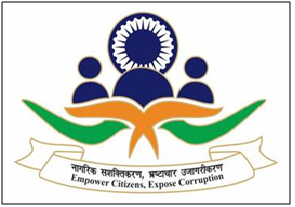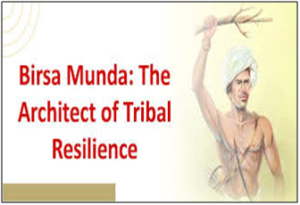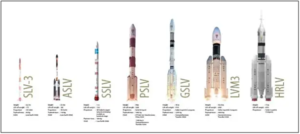Archives
(PRELIMS Focus)
Category: Polity and Governance
Context:
- The number of complaints, Lokpal has received since it began functioning in 2019-20 has dropped from a peak of 2,469 in 2022-23 to just 233 this year till September.

About Lokpal:
- Nature: The Lokpal and Lokayukta Act, 2013 provided for the establishment of Lokpal for the Union. It is a statutory body without any constitutional status.
- Work: They perform the function of an “ombudsman” and inquire into allegations of corruption against certain public functionaries and for related matters.
- Composition: Lokpal is a multi-member body, that consists of one chairperson and a maximum of 8 members. Out of the maximum eight members, half will be judicial members and minimum 50% of the Members will be from SC/ ST/ OBC/ Minorities and women.
- Eligibility: Chairperson of the Lokpal should be either the former Chief Justice of India or the former Judge of Supreme Court having special knowledge and expertise of minimum 25 years in the matters relating to anti-corruption policy, public administration, vigilance, etc. The judicial member of the Lokpal either a former Judge of the Supreme Court or a former Chief Justice of a High Court.
- Term: The term of office for Lokpal Chairman and Members is 5 years or till the age of 70 years.
- Appointment: The members are appointed by the president on the recommendation of a Selection Committee.
- Selection panel: The selection committee is composed of the Prime Minister who is the Chairperson, Speaker of Lok Sabha, Leader of Opposition in Lok Sabha, Chief Justice of India or a Judge nominated by him/her and One eminent jurist.
- Powers: Lokpal has powers of confiscation of assets, proceeds, receipts and benefits arisen or procured by means of corruption in special circumstances. It has the power to recommend transfer or suspension of public servant connected with allegation of corruption. It also has the power to give directions to prevent the destruction of records during the preliminary inquiry.
- Jurisdiction: The jurisdiction of Lokpal includes Prime Minister, Ministers, members of Parliament, Groups A, B, C and D officers and officials of Central Government. However, it does not have jurisdiction over Ministers and MPs in the matter of anything said in Parliament or a vote given there.
- Exception: The Lokpal does not have jurisdiction over Ministers and MPs in the matter of anything said in Parliament or a vote given there.
Source:
Category: Geography
Context:
- The expansive Western Ghats and two other national parks in India have been categorised as being of “significant concern” in the IUCN list of natural World Heritage sites across Asia.

About Western Ghats:
- Nomenclature:
- The range is called Sahyadri in northern Maharashtra and Sahya Parvatham in Kerala.
- The northern portion of the narrow coastal plain between the Western Ghats and the Arabian Sea is known as the Konkan Coast.
- The central portion is called Kanara and the southern portion is called Malabar region or the Malabar Coast.
- In the south the range is known as the Nilgiri malai in Tamil Nadu.
- Views about its formation:
- The mountains of the Western Ghats are Block Mountains formed due to the down warping of a part of land into the Arabian Sea.
- The mountains of the Western Ghats are not true mountains, but are the faulted edge of the Deccan Plateau.
- Geographical extent: The Western Ghats extend from the Satpura Range in the north, go south past Goa, through Karnataka and into Kerala and Tamil Nadu end at Kanyakumari embracing Indian ocean. These mountains cover an area of around 140,000 km² in a 1,600 km long stretch.
- Prominent hill stations: It is home to many hill stations like Matheran, Lonavala-Khandala, Mahabaleshwar, Panchgani, Amboli Ghat, Kudremukh and Kodagu.
- Major rivers:
- West flowing: The rivers that originate in Western Ghats and flow towards west are Periyar, Bharathappuzha, Netravati, Sharavathi, Mandovi etc.
- East flowing: The rivers that originate in Western Ghats and flow towards east include three major rivers viz. Godavari, Krishna and Kaveri, and many smaller/tributary rivers such as Tunga, Bhadra, Bhima, Malaprabha, Ghataprabha, Hemavathi, Kabini.
- Influence on climate: The high montane forest ecosystems influence the Indian monsoon weather pattern. The Ghats act as a key barrier, intercepting the rain-laden monsoon winds that sweep in from the south-west during late summer.
- Vegetation: The western slopes have tropical and subtropical moist broadleaf forests marked predominantly by Rosewood, Mahogany, Cedar etc. The eastern slopes of the Western Ghats have dry as well as moist deciduous forests marked predominantly by Teak, Sal, Shisham, Sandalwood trees.
- Wildlife: The Nilgiri marten, brown palm civet, stripe-necked mongoose, Indian brown mongoose, small Indian civet and leopard cat are the small carnivores living in the forests of the Western Ghats. Many species are endemic, such as the Nilgiri tahr (Hemitragus hylocrius) and the lion-tailed macaque (Macaca silenus).
- Uniqueness: It is recognized as a UNESCO World Heritage Site. It is one of the eight hotspots of biological diversity in the world due to its high level of biological diversity and endemism.
- Protected areas: Western Ghats is home to India’s two biosphere reserves, 13 National parks, several wildlife sanctuaries and many Reserve Forests. The Nilgiri Biosphere Reserve forms the largest contiguous protected area in the Western Ghats.
Source:
Category: History and Culture
Context:
- In the run-up to the fifth Janjatiya Gaurav Divas on November 15, which will mark the end of tribal icon Birsa Munda’s 150th birth anniversary, the Union government has written to the States, saying they “must organise” commemorative events at the State and district levels from November 1 to 15.

About Birsa Munda:
- Birth: He was born in Ulihatu on 15th November 1875, now in Jharkhand’s Khunti district, to a poor sharecropper (sajhadar) family. He belonged to the Munda tribe, a major Adivasi community of the Chotanagpur plateau.
- Education: He attended local schools under the guidance of Jaipal Nag. He then studied at a missionary school and later at BEL school in Chaibasa for four years. He was also influenced by Christianity but later rejected it due to cultural and religious differences.
- Foundation of separate sect: He was influenced by Vaishnavism and Anand Panre (a munshi), leading him to form his own spiritual sect. He became known as Bhagwan (God) by his followers and founded the Birsait sect. He is lovingly called “Dharti Aaba” (Father of the Earth) by his followers.
- Teachings: He promoted monotheism through the worship of Singhbonga, a tribal deity. He campaigned against alcoholism, belief in black magic and superstitions, and forced labour (beth begari). He encouraged clean living, hygiene, and spiritual unity. He also taught pride in tribal culture and community land ownership.
- Fight against British exploitation: British land policies destroyed the Khuntkatti land system, where land was communally owned. Birsa Munda educated his people about these injustices and urged them to reclaim their rights.
- Launch of Ulugan: He gave the call for Ulgulan (rebellion) and urged tribals to stop paying rent. He also gave the slogan of resistance: “Abua raj ete jana, maharani raj tundu jana” (Let the queen’s rule end, and our rule begin).
- Course of revolt: The revolt began in 1895 as a response to land encroachment and forced labour policies imposed by the British Raj. In 1895, Birsa Munda was arrested on charges of rioting and jailed for two years. After his release in 1897, he resumed his efforts, moving village to village to gather support and promote the vision of a tribal-led kingdom.
- Death: Birsa Munda died of cholera in 1900, marking the end of the active phase of the revolt.
- Legacy: Since 2021, 15 November is celebrated as Janjatiya Gaurav Divas (Tribal Pride Day). Further, the only tribal leader honoured by the Parliament of India through the installation of his portrait in its museum is Birsa Munda.
Source:
Category: Science and Technology
Context:
- With the motto ‘come for the mountains, stay for the stars,’ the Hanle Dark Sky Reserve is showing how the Himalayan skies are being preserved today and will be carried forward for future generations.

About Hanle Dark Sky Reserve:
- First of its kind: Located in Ladakh, Hanle is now protected as India’s first dark sky reserve.
- Management: It is managed as part of a memorandum of understanding between the Indian Institute of Astrophysics (IIA) in Bengaluru, the Union Territory of Ladakh, and the Ladakh Hill Development Council in Leh.
- Located within wildlife sanctuary: The Hanle Dark Sky Reserve, a unique government-funded and science-driven sustainable development initiative, is located within the Changthang Wildlife Sanctuary, surrounding the Indian Astronomical Observatory, a research facility operated by IIA.
- Telescopes used: It has two optical telescopes, the Himalayan Chandra Telescope and the GROWTH India Telescope (with IIT Bombay), and two Cherenkov telescopes — the High Altitude Gamma-Ray Telescope Array (with the Tata Institute of Fundamental Research) and the Major Atmospheric Cherenkov Experiment (with the Bhabha Atomic Research Centre).
- Use of astro-tourism: In support of astrotourism, IIA scientists have trained 25 local youth, 18 of whom are women, as “Astronomy Ambassadors.” These ambassadors are equipped with telescopes and taught basic astronomy concepts. The night-sky tours they lead for visitors help them with a part-time income.
Source:
Category: Science and Technology
Context:
- ISRO will launch military communications satellite CMS-03 on November 2 from the Satish Dhawan Space Centre in Sriharikota. The CMS-03 communication satellite, also known as GSAT-7R, will be launched by the Launch Vehicle Mark 3 (LVM3).

About GSAT-7R:
- Nature: It is an upcoming Indian military communication satellite for the Indian Navy, designed to replace the GSAT-7 (Rukmini) satellite.
- Launch: Originally slated for a 2024 launch, the launch is now scheduled for November 2, 2025, using the LVM-3 rocket.
- Objective: It will provide secure, multi-band communication services for naval assets like ships, submarines, and aircraft, enhancing secure, multi-band communication for the Navy’s blue-water operations
- Multi-band satellite: It is a multi-band communication satellite that will provide services over a wide oceanic region including the Indian landmass.
- Heaviest communication satellite: It weighs about 4400 kg and it will be the heaviest communication satellite to be launched to Geosynchronous Transfer Orbit (GTO) from Indian soil.
About LVM-3 Rocket:
- Nature: It is India’s most powerful launcher built entirely with domestic technology.
- Stages:
- The first (or bottom most stage) is in the form of 2 S200 boosters straps to the sides of the rocket body. They combust a solid fuel called hydroxyl-terminated polybutadiene,
- The second stage is powered by Vikas Engines, which combust a liquid fuel, either nitrogen tetroxide or unsymmetrical dimethylhydrazine.
- The Uppermost final stage is Powered by a cryogenic engine. It combusts liquified hydrogen with liquified oxygen.
- Payload capacity: It can lift up to 8 tonnes in low earth orbit.
- Evolution: Since its first flight in 2014, it has enabled India to pursue heavy-lift geosynchronous missions with complete strategic autonomy. Future variants of LVM3 now under development are aimed at reducing costs and improving performance through new technologies like electric propulsion and recoverable first stages.
- Major missions launched:
- Chandrayaan-2 Mission
- GSAT-29 Mission
- GSAT-19 Mission
- CARE Mission
Source:
(MAINS Focus)
( GS Paper 2 – Polity and Governance – Structure, Organization and Functioning of the Executive and the Judiciary; Separation of Powers; Functioning of the Constitution)
Context (Introduction)
Constitutional morality represents the ethical foundation of a democracy — the commitment of citizens and institutions to uphold the values of justice, liberty, equality, and fraternity beyond mere legal compliance.
- It demands that constitutional functionaries act with integrity, restraint, and respect for the rule of law, ensuring that governance remains faithful to the spirit, not just the letter, of the Constitution.
Main Arguments
-
- The concept of constitutional morality originates from George Grote’s 19th-century idea of reverence for constitutional forms, later invoked by B.R. Ambedkar to stress that democracy in India requires moral cultivation, not merely institutional design.
- Constitutional morality refers to adherence to norms, propriety, and conduct expected of constitutional functionaries — going beyond the black-letter law to embody justice, fairness, and rule of law.
- It distinguishes between constitutional law (enforceable by courts) and constitutional conventions or morality (non-justiciable but binding through political or moral accountability), following A.V. Dicey’s framework.
Judicial evolution has expanded its scope:
- P. Rathinam v. Union of India (1994) recognised law as an embodiment of moral principles.
- S.P. Gupta case viewed breach of conventions as serious moral violations with political consequences.
- Sabarimala case (2018) equated public morality under Article 25 with constitutional morality, though later referred to a larger bench.
- Manoj Narula v. Union of India (2014) linked it to rule of law and executive propriety, urging restraint in ministerial appointments.
- State (NCT of Delhi) v. Union of India (2018) and K.S. Puttaswamy v. Union of India (2017) associated it with liberal values, respect for judicial orders, and non-arbitrary governance.
The courts interpret constitutional morality as the ethical compass that aligns institutional actions with the Constitution’s spirit — protecting minority rights, promoting inclusiveness, and ensuring accountability.
Criticisms / Drawbacks
- Constitutional morality lacks clear legal contours and may risk judicial overreach when courts interpret morality subjectively.
- Over-reliance on courts undermines democratic institutions and public morality, shifting moral responsibility away from the legislature and citizenry.
- Ambedkar’s warning remains relevant — democracy is still a “top-dressing” unless moral citizenship is cultivated beyond constitutional text.
- Absence of uniform ethical standards among political executives leads to selective invocation of constitutional morality.
Reforms and Way Forward
- Foster constitutional literacy through civic education to embed values of liberty, equality, and fraternity among citizens.
- Strengthen institutional ethics — mandatory codes of conduct for public officials and judicial accountability mechanisms.
- Encourage parliamentary debates on moral dimensions of governance and constitutional conventions.
- Embed constitutional morality in civil services training and political leadership programs to align governance with rule of law and ethical governance.
- Promote judicial restraint and inter-institutional dialogue to ensure morality complements, not supplants, legality.
Conclusion
Constitutional morality is the ethical soul of the Indian democracy — it bridges legality with legitimacy. As Ambedkar envisioned, nurturing it among citizens, lawmakers, and judges is essential for transforming the Constitution from a mere document into a living moral covenant that safeguards justice, equality, and dignity in a diverse democracy.
Mains Question
- “Constitutional morality is not a natural sentiment; it has to be cultivated.” — In light of B.R. Ambedkar’s statement, discuss how the Indian judiciary and political institutions have interpreted and practiced the idea of constitutional morality in contemporary governance. (250 words, 15 marks)
Source: The Hindu
(Related to: GS Paper 2 – Important International Institutions, Agencies and Fora – their Structure, Mandate, and Role in Global Governance)
Context (Introduction)
The United Nations, born from the ashes of World War II, was envisioned as a mechanism to secure peace, uphold human dignity, and promote collective progress. Eight decades later, the UN remains indispensable yet deeply constrained by outdated structures, political rivalries, and the waning spirit of multilateralism.
Main Arguments
- The UN emerged not as a symbol of power but as an institution of peace, tasked with preventing conflict and fostering cooperation. Its achievements — from decolonisation support to humanitarian relief and peacekeeping — illustrate its continuing relevance.
- Over the decades, it evolved from a Cold War battleground to a laboratory for post-Cold War cooperation. Yet, bureaucracy, political interference, and funding shortfalls have limited its capacity.
- The post-1945 global order has transformed into a multipolar and fragmented landscape, marked by nationalism, technological disruptions, and climate insecurity — all demanding agile multilateral responses.
- The erosion of liberal internationalism threatens the UN’s foundational values — sovereign equality, collective security, and peaceful dispute resolution.
- The Security Council’s structure, frozen in 1945 realities, fails to reflect the present balance of power. Emerging powers like India, Brazil, South Africa, Germany, and Japan demand fair representation to ensure legitimacy and efficacy.
- India’s claim for permanent membership rests on its democratic credentials, contributions to UN peacekeeping, economic growth, and leadership in the Global South. Excluding it undermines the UNSC’s credibility and global governance reform.
- Despite institutional weaknesses, UN agencies like UNHCR, WFP, and UNICEF remain vital for humanitarian aid, while the Sustainable Development Goals (SDGs) have institutionalised a global vision for inclusive and sustainable growth.
- The UN’s normative power — in shaping discourses on human rights, gender equality, and environmental protection — remains a subtle but lasting achievement.
Criticisms and Drawbacks
- The UN’s effectiveness is hampered by veto politics, where major powers prioritize strategic interests over global welfare.
- Budgetary shortfalls, especially due to delayed payments by major contributors like the U.S., have weakened operations.
- Bureaucratic inertia, fragmented mandates, and politicisation of decisions often dilute the organisation’s impact.
- Its peacekeeping missions, though well-intentioned, have struggled with limited mandates and lack of coordination, as seen in Rwanda and Srebrenica.
- The credibility crisis of the UN mirrors the decline in global moral consensus, where nationalism increasingly trumps cooperation.
Reforms and the Way Forward
- UNSC Reform: Expand permanent and non-permanent membership to reflect 21st-century power realities. The inclusion of India and other emerging nations would enhance legitimacy.
- Operational Agility: Streamline decision-making, reduce bureaucratic delays, and empower field agencies with digital tools for real-time crisis management.
- Moral Leadership: Reclaim the UN’s normative role as the global conscience — speaking truth to power and defending human rights without fear or bias.
- Financial Sustainability: Ensure predictable, depoliticised funding through assessed contributions and diversified partnerships.
- Reinforce Multilateralism: Strengthen regional partnerships (such as G20, African Union, ASEAN) as complementary pillars supporting UN-led governance.
- Member-State Responsibility: The UN can only be as strong as the political will of its members. States must act as partners in reform rather than critics of inertia.
Conclusion
At 80, the UN stands not as a relic of the past but as a symbol of possibility — an imperfect yet indispensable forum for dialogue and collective action. As Shashi Tharoor reminds, it was never meant “to take mankind to heaven but to save humanity from hell.” Its renewal depends on our collective commitment to make multilateralism more inclusive, responsive, and humane in a world yearning for principled global cooperation.
Mains Question
“Eighty years after its founding, the United Nations remains both indispensable and inadequate.” Discuss the need for comprehensive UN reforms, particularly of the Security Council, in light of changing global power dynamics and emerging transnational challenges. (250 words, 15 marks)
Source: The Hindu
